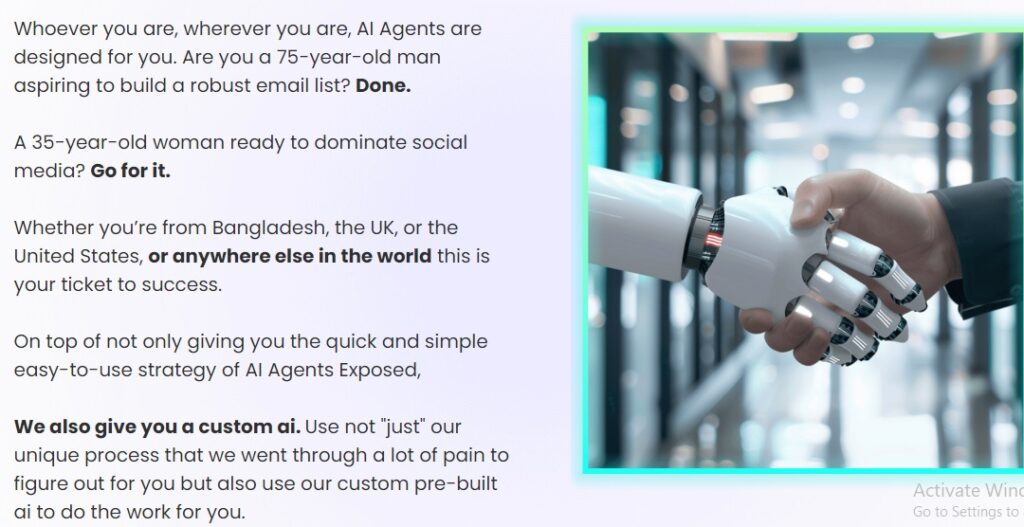
AI Agents Exposed: A Critical Review
Introduction of AI Agents Exposed:
Artificial Intelligence (AI) agents have permeated various facets of our lives, promising convenience, efficiency, and even intelligence. However, behind their sleek interfaces and seemingly autonomous actions lie complex algorithms and decision-making processes that warrant closer scrutiny. In this review, we delve into the world of AI agents, examining their capabilities, limitations, and ethical implications.
Understanding AI Agents
AI agents are software programs designed to perform specific tasks autonomously, often utilizing machine learning algorithms to adapt and improve their performance over time. These agents range from virtual assistants like Siri and Alexa to sophisticated recommendation systems employed by streaming services and e-commerce platforms.

>>Click instant access and other details<<
Capabilities
The capabilities of AI agents are impressive, to say the least. They can analyze vast amounts of data in real-time, recognize patterns, and make predictions with a high degree of accuracy. For instance, recommendation algorithms can suggest products or content tailored to individual preferences, while chatbots can engage in natural language conversations, simulating human interaction.
Limitations of AI Agents Exposed
However, AI agents are not infallible. Their effectiveness is contingent upon the quality of data they are trained on, which can lead to biases and inaccuracies. Moreover, AI agents lack true understanding and consciousness; they operate within predefined parameters and cannot comprehend context or exercise judgment in the same way humans can.
Ethical Implications
The deployment of AI agents raises several ethical concerns. One major issue is algorithmic bias, wherein AI systems may discriminate against certain groups based on race, gender. Or other characteristics present in the training data. Additionally, there are concerns regarding privacy and data security, as AI agents often collect and analyze personal information without explicit consent. Furthermore, the use of AI in autonomous decision-making processes, such as in healthcare or criminal justice, raises questions about accountability and transparency.

>>Click instant access and other details<<
Case Studies of AI Agents Exposed
Several high-profile cases have highlighted the potential dangers of AI agents. In 2016, Microsoft’s chatbot Tay became infamous for making inflammatory and offensive remarks on Twitter, showcasing the susceptibility of AI to manipulation and exploitation. More recently, instances of AI-powered surveillance systems misidentifying individuals and perpetuating racial biases have sparked widespread outrage and calls for regulation.
Conclusion of AI Agents Exposed
AI agents represent a double-edged sword, offering unprecedented convenience and efficiency while also posing significant ethical and societal challenges. As their influence continues to grow, it is imperative that we approach their development and deployment with caution and foresight. By addressing issues of bias, privacy. And accountability, we can harness the potential of AI agents while mitigating their risks to ensure a more equitable and responsible future.
